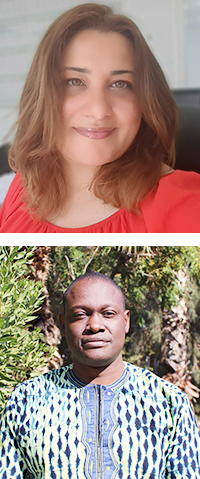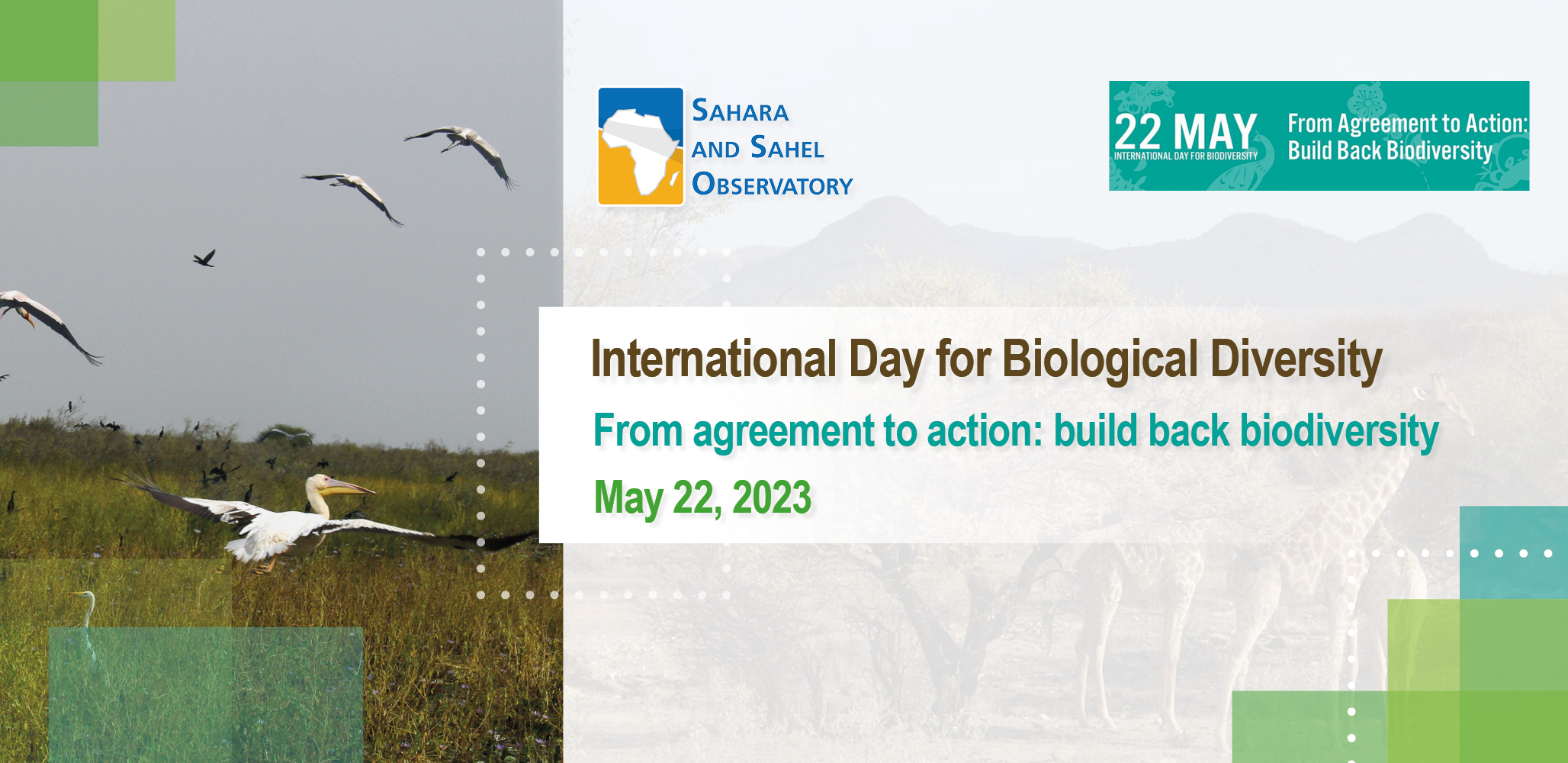International Day for Biological Diversity 2023 | From agreement to action : re-building biodiversity

Mrs. Kaouther Hamrouni
Biodiversity Expert
Land Department
Sahara and Sahel Observatory
Mr Emmanuel SAWADOGO
Master in Animal Biodiversity & Tropical Ecosystems
Sahara and Sahel Observatory
The climate disruption the world is currently witnessing and the resulting natural disasters are partly consecutive to the loss of biodiversity. At the opening of the 15th Conference of the Parties (CoP15) of the Kunming-Montreal Convention on Biological Diversity, in Canada - December 2022, the Secretary General of the United Nations declared : ‘’Today, a third of all land is degraded, this makes it even harder to feed the growing populations’’.
The collapse of biodiversity is the result of the careless and we might say criminal behavior of man, who heads for his own fall. Indeed, through the anarchic exploitation of natural resources, human activity is degrading forests, agricultural land, rivers, lakes and oceans, that used to live the perfect healthy life. As a result, the survival of a huge-deal of species of plants, mammals, birds, reptiles, amphibians, fish and invertebrates is put in danger. According to the IPBES report (2019) one million animal and plant species are threatened with extinction because of the disappearance of their natural habitats. It is therefore necessary to take appropriate measures to preserve biodiversity for the survival of humanity. We, present generations, have the responsibility to meet this unprecedented environmental challenge and to get things right by halting the harm that we have made.
Several agreements on biological diversity have been signed with supporting measures. However, there is no doubt that these measures are not binding enough and the funding they made it possible to raise fall dramatically short of what is needed. No global biodiversity targets have been met (UNDP, 2022).
The historic Kunming-Montreal Framework, adopted at the end of CoP15, is a global call to restore and protect biodiversity through 23 global goals. The "30X30" initiative is one of these goals that was adopted to designate and thus protect at least 30% of terrestrial and marine ecosystems in the world by 2030.
From agreement to action means that our speeches and decisions will now have to be supported by facts and funding to match the ambitions, in order to contribute to the achievement of the Sustainable Development Goals. Nature-based solutions are still underfunded (UNEP, 2022). Concrete actions up to the challenges of climate change, specific extinction risks and the extent of land degradation shall be taken for a significant restoration of terrestrial and aquatic ecosystems. Global decision makers are urged to take consistent action for the survival of humanity and the protection of the earth.
Africa, least contributor to this climate change is the continent hit most by its consequences. It is high time we concretely supported African ecosystem restoration initiatives in order to improve their capacity to absorb carbon dioxide and reduce global warming.
The Sahara and Sahel Observatory (OSS), through its mission and experience in the coordinated and sustainable management of natural resources in Africa, supports and implements several sub-regional and national projects for the biological diversity preservation. As part of its 2030 strategy, the OSS made the commitment of providing its partner countries with knowledge and methods for assessing biodiversity and adapted ecosystem services. This assessment is part of the United Nations Convention on Biological Diversity Vision 2050 "Living in harmony with nature" and allows a better valuation, as well as actions to monitor the flora and fauna. Working on the achievement of this goal, the OSS makes an indirect contribution to strengthening food production, improving ecosystem services and, consequently, limiting population migrations. The AfrikENCA initiative, launched by the OSS in collaboration with the various partners of the Copernicea project should, in the long term, provide the countries with their own and independent operational mechanism for Ecosystemic Natural Capital Accounting (ENCA). Accredited as a Regional Implementation Agency by the Adaptation Fund and the Green Climate Fund, the OSS is a major channel and contributor to the conservation of biological diversity in Africa.
